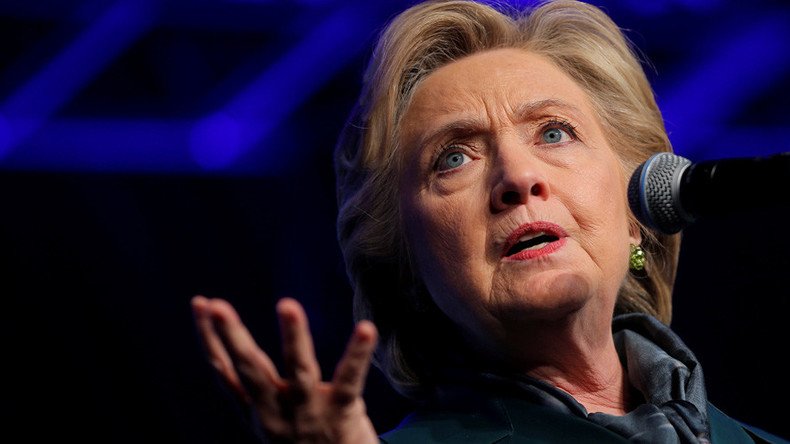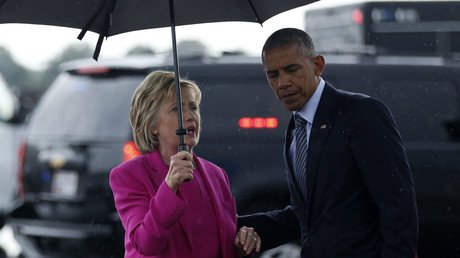White House emails show concern over media coverage of Clinton emails before campaign – report

Months before Hillary Clinton declared her bid for the presidency, her team stayed in close contact with the State Department and the White House to avoid the media’s uncomfortable questions about her emails, newly obtained emails reveal.
The newly disclosed emails were released to the Republican National Committee as part of a Freedom of Information Act lawsuit, and shared solely with the Wall Street Journal.
The emails particularly reveal the revolving door between the White House, the State Department and Clinton’s incipient campaign leading up to the time in April 2015 she announced her intention to run for the presidency.
The RNC has only shared some of the emails it obtained, specifically those that highlight friendly back-and-forths between the White House and the State Department.
FBI agrees to destroy laptops of Clinton aides in immunity deal https://t.co/cB5drWcBil
— RT (@RT_com) October 5, 2016
Less than a month before Clinton officially announced her campaign, White House communications director Jennifer Palmieri got in touch with State Department spokeswoman Jennifer Psaki, asking her: “between us on the shows… think we can get this done so he is not asked about email.”
“Agree completely and working to crush on my end,” Psaki responded, as quoted by the Wall Street Journal.
The newspaper assumes Palmieri referred to Secretary of State John Kerry, who was to appear on CBS’s “Face the Nation” three days later. In one of the emails, Psaki wrote to Palmieri: “Good to go on killing CBS idea.”
“And we are going to hold on any other TV options just given the swirl of crap out there,” Psaki added. The two then joked about the wording Psaki used.
“Ha I mean—the challenging stories out there,” Psaki explained. By the time of that exchange, Palmieri had already announced that she would be leaving the White House to join Clinton’s team in mid-2015. There are emails that show Palmieri helping Psaki to swap jobs and take her job at the White House weeks later, once she was gone.
CBS ended up not asking Kerry about Clinton’s mishandled emails and home-based server that she used during her tenure at the State Department. The channel told the Journal that the questions Kerry was asked were not censored.
“No subject was off-limits when this interview was arranged, as is the CBS News standard,” CBS spokeswoman Caitlin Conant told the newspaper. “CBS News’ State Department correspondent was in Egypt with Secretary John Kerry in the home stretch of the Iran nuclear deal negotiations and discussed policy issues of the day with him on this official trip."
The RNC has also shared an entirely redacted active discussion between top White House communications officials regarding Kerry’s interview to CBS. One official has revealed to the Journal that, at the time, one of the main debates was whether or not Kerry should appear on the shows at all, and less on what questions were asked.
Another email exchange happened between the State Department’s senior official Patrick Kennedy and one of Clinton’s attorneys, Heather Samuelson.
Kennedy was writing about his concerns about newly released documents regarding the former secretary of state, posted by the department.
It was up to Samuelson to determine which of Clinton’s emails were government-related and which were personal, before a bunch of them were provided to the State Department. In another exchange, Kennedy was telling Samuelson that Politico was “running [a] story that State official said Secretary Clinton did wrong thing. Wildly inaccurate reporting.”
FBI calls Clinton email probe ‘different’ as key witness ditches House hearing https://t.co/dhPzJBcjGSpic.twitter.com/7uDPq4bznc
— RT America (@RT_America) September 13, 2016
State Department spokesman John Kirby has defended the close contact revealed by the RNC, telling the Journal that it was not unusual for his people and the White House “to be in touch when agency officials are potentially conducting television interviews."
Kirby also defended Kennedy, suggesting that he was “simply offering a reaction to a press article.”













